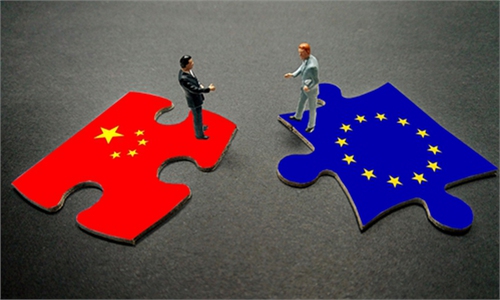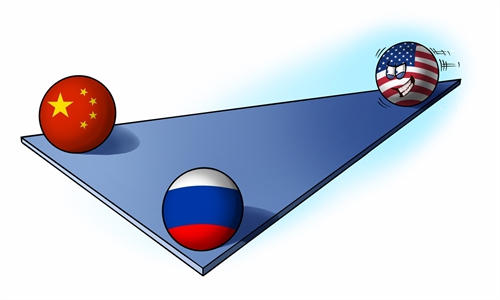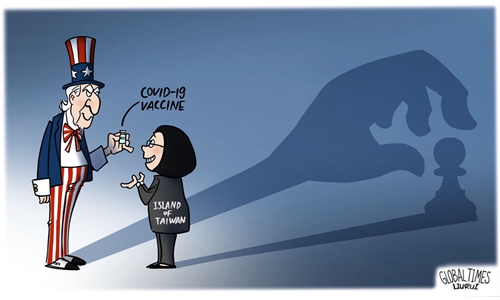
China's bright future Illustration: Chen Xia/GT
Rana Mitter, professor of the history and politics of modern China at Oxford University, raised in a recent interview with Global Times that Western countries like G7 members have one thing in common - they are predictable with stable, socioeconomic systems, while China is different given its unpredictability of its recent history. This reflects a kind of cognitive bias of Western society toward China. Due to lack of the essential and objective information about China, the West often misinterprets and misjudges China. However, when it comes to predictability of strategy and policy, China scores much higher than the West.The truth is, the Western partisan politics has been undermining the stability and predictability of Western countries. Given the transition of power, policies of the US and some European countries can change drastically every few years.
Take the US. When George W. Bush came into office, the chief approach could be called "anything but Clinton." This meant rejecting most, if not all, of the policy stances that were undertaken during Bill Clinton's time in office. Now, ever since President Joe Biden took office, his administration has also attempted to reverse many policies that his predecessor promulgated, just as what the Donald Trump administration had done to Barack Obama's policies.
In this context, it is difficult to conclude predictability and stability from Western society. Who can properly predict the invasion of Iraq by the US or the Brexit of the UK? Can the US ensure that Trump won't win the 2024 presidential elections? Or can the country guarantee that a Trump-like candidate will not be elected as US president in the future? If not, how can certain Western elites describe themselves as being predictable?
By contrast, China shows more domestic and foreign policy continuity and stability. No one can deny that China, based on consistent strategy, has realized unprecedented high-speed economic growth, improvement of people's livelihood and welfare, and the all-round development in fields such as science and technology - only within decades. China under the one-party rule is more predictable than the Western world with the latter's costly rotations of political power. Political parties in Western countries only need to be responsible for their countries for four or eight years. Meanwhile, the Communist Party of China takes full and long-term responsibility for the governance and development of the country. By comparison, it is clearly which one is more predictable.
Especially since the reform and opening-up over four decades ago, China's policy has been consistent and stable. It can be anticipated that the fundamental and strategic tone of China's foreign and domestic policies will remain the same for the following 10 years, or even longer.
The rhetoric about "the end of history," raised by US political scientist Francis Fukuyama, is somewhat still popular in the West, at least among some elites. The narrative argues that Western liberal democracy would become a global norm after the end of the Cold War and the disintegration of the Soviet Union. But the fact is that the governance and development of almost all countries in Asia, Africa and Latin America which have carried out Western democratic system now lag far behind China. Even Western traditional powers such as the UK, France and Germany can hardly hold a candle to China in terms of the speed of economic growth and the efficiency of improvement of people's wellbeing. The control of COVID-19 is a most recent example.
There is a deep-rooted hostility and distrust of communism and the Communist Party of China in the West. People in the West have been taught that communism is evil and doomed to fail. They gained a lot confidence from the disintegration of the Soviet Union. But such confidence is collapsing in the face of China's rise and development. Many in the West are reluctant to accept the success of China's development. They still indulge in suspicion and arrogance toward China.
Amid the epidemic, China has displayed huge institutional advantages. Yet few meaningful reflections about mishandling over the epidemic have happened in the Western world. The West's capability for self-correction has been declining. Factors like the rise of populism, severe social divisions, and tense political struggles prevent the West from realizing their own problems. Some Western politicians seek to distort domestic attention by passing the buck to fictional scapegoats. Even if some political elites properly fathom the problems, it is not easy for them to reach a domestic consensus to conduct reforms to correct these errors. This is a big challenge that the West is currently encountering.
The author is deputy director of the Center for American Studies at Fudan University. opinion@globaltimes.com.cn



